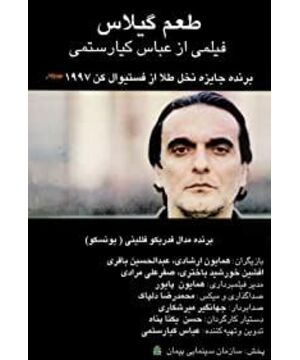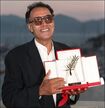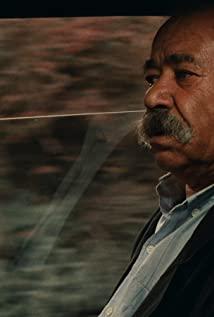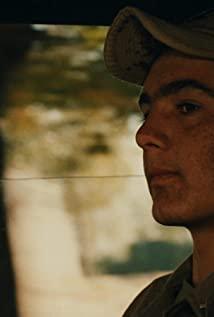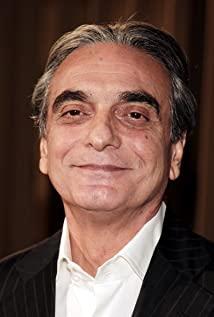film begins with a rambling, searching Mr. Barty. The car is the most important prop in "The Taste of Cherry", it is the carrier that carries Mr. Barty. It is Mr. Batty's tool for finding death, for his deliverance, as well as all of Mr. Batty's suffering. In "The Taste of Cherry", he never explained why Mr. Barty went to seek death, and why he had to seek death. However, this is also what Abbas wants to convey to the audience. In fact, choosing to die does not necessarily require a certain reason or how tragic the encounter. It is just a natural product of the human mind.
Mr. Barty did not want to commit suicide on impulse. He handled the details of his funeral arrangements very well. It can be seen that he has been planning for "suicide" for a long time. Mr. Barty chose a secluded mountain, from where he could see the city in the distance, and the tomb was chosen under a cherry tree, which, according to Chinese saying, shelters both the wind and the rain. At this time, Mr. Barty, who was driving around the city, could not wait to die, and he hoped to find someone today who would bury his body from the crows. So he searched in the labor service city, and his car drove one person after another. Apparently Mr. Barty took his own death very seriously. He must find someone who can be trusted and trusted, not someone who buries himself for money. Mr. Barty failed to find the right person in the labor market.
A soldier caught the attention of Mr. Barty. He was a miserable child who had to be a soldier because his family was poor. It’s worth noting that the film is set in Iran, a place where there are constant wars and people are dying. People are accustomed to war and to death, but they still live in the hope of peace and strive to survive. Mr. Batty began to question the little soldier tentatively. The little soldier was obviously frightened by Batty, and even thought that Mr. Batty was crazy. So when Mr. Barty stopped the car, the little soldier ran away. The funny thing is that the price of soldiers defending the motherland is to kill, and soldiers will not kill without this premise. This is another refutation. It is also murder. When in different positions and angles, one is a great resistance, and the other is a crime.
Mr. Barty is still looking for someone who can help him complete his death on the boundless barren hills. At first, he wanted to choose a conscientious janitor, but because he insisted too much on principles, Mr. Barty turned to the seminary. student, a person who advocates life. Obviously this choice will be fruitless. In the eyes of the theologians, life is precious, and those who choose suicide are sinning. He couldn't understand Mr. Barty's mortal heart, but tried his best to enlighten Mr. Barty with his teachings.
Mr. Barty's defense of the Theologian is: "In the sight of God and social norms, the choice of death is the only privilege a human being can have, because almost everything in our lives is predestined at our birth: our date of birth and Location, our parents, our home, our nationality, our culture..." We can choose our future, but we cannot choose our parents, our own living environment. When a person who was born poor wants to try to change his destiny, the effort he puts in is beyond what ordinary people can bear. But if you live a prosperous life, have a harmonious family, and are healthy, are you happy? Everyone has different answers for happiness and life. People can choose a lot, but there are more things that you can't choose and can't do anything about.
The third person sitting in Barty's car was a taxidermy teacher, who decided to agree to Barty's request in order to save his sick granddaughter with a generous payment. At the same time, he also told Barty a story: he once thought of suicide when he was young, and when he climbed to the tree to tie a rope, he found a soft mulberry. He ate one, and it was delicious, then he ate the second, the third... Suddenly, he saw the sun rise from the top of the mountain, a beautiful sun, a beautiful landscape, a lush green earth. Later, he got down from the tree, picked up the remaining mulberries, and brought them home to share with his wife and children.
This wise and kind old man is like a philosopher, he tells life with the most trivial things in life. When Barty's car came to the same fork as many times in life, the old man led Barty to another road. Mr. Barty said, "I don't know this road." The old man said, "But I Knowing this road, it is longer, more beautiful, and more beautiful. I have been groping in this desert for 35 years." As the old man said, life cannot be smooth sailing, and there will always be many setbacks. Many detours have been taken, but it is a valuable asset for life, because life will be rich and colorful because of their existence.
Abbas used four minutes of footage to look down on the rough road. This is the road that Mr. Barty has traveled more than once. On this deserted mountain, green grass and trees grow strong. And those poor but kind-hearted people use their labor to gain a bargaining chip for survival. The old man in the car told Barty this story: "There was a patient who went to the doctor. He told the doctor that no matter where he touched his body, it would hurt." The doctor smiled and said to him, "No, You are not sick." The patient does not believe that he is not sick because he is so miserable. But the doctor raised his finger and said to him, "It's not that your body is in pain, but your finger is broken, so it will hurt wherever you point it." A lot of things in this world are like this. When you are in pain, you never think about the source of the pain, but you just keep sinking into this self-created pain. And when you switch to another angle, you will find that there is a lot of pain, but it is actually you who are mediocre.
When the old man got out of the car and left, Mr. Barty couldn't help but ran to the place where the old man was working, and repeatedly told the old man that he must try several times to see if he died. The old man dealt with Mr. Barty's request nonchalantly. Perhaps he knew that Mr. Barty's determination to die had begun to falter.
In the middle of the night, Mr. Barty was cleaning up at home. He closed the curtains, turned off the lights, put on his coat, and called a taxi to drive to his grave. It should be noted that the iron crowbar and the other half of the payment that Mr. Barty had agreed to bury him in advance were placed in his car, while Barty took a taxi to the cemetery this time and did not bring any money. pack. Dark clouds covered the sky, and a storm was about to come. Mr. Barty lay in his grave, lightning and thunder reflected on his face. Ripe cherries fell on Barty one after another, and a relieved smile appeared on his face.
Abbas did not tell us whether Mr. Bharti died or not, let alone his final choice. Because life is full of more choices, and it's you who make the choices. At the end of the film, Abbas and the film crew unexpectedly appeared. Abbas seems to be using this ending to tell the audience that it's all just a movie. But in this world, more things like Mr. Barty are happening.
People live or die, and what do you choose between life and death? What's your reason for living or dying? Maybe the answer, only you know.
Publisher country: Iran / France
Release Year: 1997
Director: Abbas Kiarostami
Starring: Humayun Pawar, Eheduoer Hussein Baji Li
View more about Taste of Cherry reviews


